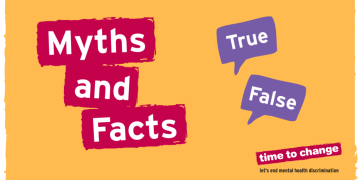Due to the impact of CRS, coupled with the advantages of American life insurance in many aspects such as cost performance, taxation, investment target selection, and consumer rights protection, more and more people regard American life insurance as indispensable when they allocate global assets. part of the
Many overseas customers will encounter some questions when purchasing U.S. life insurance, such as how to settle claims when they purchase U.S. insurance as a foreigner? Is US insurance equivalent to a Hong Kong dollar policy? What factors are considered in the review of American life insurance? This article answers them one by one for everyone.
In the United States, there are dozens of insurance companies that sell life insurance to foreigners, and policyholders can choose insurance companies and insurance products according to their own wishes. And no matter what nationality you are, as long as you enter the United States legally, you can buy life insurance in the United States (you need to do an insurance medical examination in the United States).
1. What is the difference between foreigners and locals?
Claim settlement is the most concerned issue for many customers when consulting American life insurance. So, what information do you need to provide when filing a claim? Does the beneficiary have to fly to the United States to file a claim? Will the circumstances of my death outside the U.S. affect the outcome of my claim? What causes of death are not eligible for compensation? Next, let’s take a look at them one by one.
1, information required for US life insurance death claims
The following documents can be couriered to the insurance company, and the beneficiary does not need to fly to the United States to apply for a claim:
Claim Form
The official original of the death certificate, usually issued by the Public Security Bureau of the mainland
English translation of death certificate
Notarized documents for translations
2 How to pay the claim amount to the beneficiary?
If the insured died outside the United States, the general claim settlement time is 4-8 weeks. The most common method of payment for insurance companies is to write a check to the address designated by the beneficiary.
Regarding the claims, the beneficiary can choose to deposit it in any bank account in any country, or choose to deposit it in the account opened by the insurance company for the beneficiary. In the latter case, the beneficiary can withdraw part or all of the amount at any time. If only part of the amount is withdrawn, the insurance company will pay fixed interest on the remaining balance.
3. Is the claim amount tax-free?
Many insurance brokers roughly tell customers: “Life insurance claims are exempt from inheritance tax.” This statement is actually very misleading.
If the policy holder is a foreigner, regardless of the nationality/identity of the beneficiary, regardless of the amount of the claim, the insurance settlement is fully exempt from inheritance tax.
Things are a little different if the policyholder is an American. The claim amount and assets at home and abroad will be included in the inheritance tax exemption amount, and the inheritance tax will be levied on the part exceeding the tax exemption amount.
The upper limit of the estate tax exemption varies each year, and the estate tax exemption for 2019 is $11.4 million. If the life insurance claim plus existing assets exceeds US$11.4 million at the time of death, the excess will be subject to a 40% federal estate tax, which does not include state estate taxes in some states and court notary fees.
4How to avoid this heavy tax?
The operation is very simple, just put the policy into an irrevocable life insurance trust (ILIT). Life insurance claims in the trust will be fully exempt from estate tax.
To sum up, foreigners who purchase American life insurance policies enjoy the same rights and interests as Americans.
Second, what are the factors considered in the review of American life insurance?
Auditing means that the insurance company evaluates the risk through a series of data and facts, and then decides whether to underwrite, the upper limit of the underwriting amount, and the underwriting fee.
1, age
The older you are, the closer you are to the end of normal lifespan, and the higher the risk.
2, gender
Typically, women live longer on average and have lower life insurance risk costs than men.
3, height and weight
According to the height and weight of each person, if you are overweight or underweight, you may be asked to increase your premium or even be refused insurance.
4, family medical history
Whether any immediate family members died of illness before the age of 60, whether any immediate family members are currently seriously ill, etc.
5, physical health history
At least the past 5 years of medical records: whether you have been hospitalized, have had surgery, have any diseases, etc., these will directly affect the level of insurance premiums.
6, reason for insurance
Insurance companies need to know the purpose of purchasing insurance: whether it is to provide family protection, or to inherit assets, or to avoid taxes, etc.
7, Occupation
For insured persons in high-risk occupations, such as military officers, police officers, government officials, celebrities in the entertainment industry, etc., many insurance companies can directly refuse insurance, and some insurance companies can cover them with additional premiums. If the amount insured is too large, it will also be co-insured with other reinsurers.
8, income
Why do we need to consider income? Because insurance is used to avoid economic risks, not to speculate or make huge profits.
A person’s annual income is 50,000 US dollars, and the legal retirement age in the United States is 65 years old. If the insured person can still work for 25 years, then his total income is 1.25 million US dollars, and his economic value cannot exceed 1.25 million US dollars. The loss caused by his death does not exceed 1.25 million US dollars, and the insurance company can only approve life insurance of 1.25 million US dollars at most. When he applies for $2 million life insurance, the insurance company will directly reduce the sum insured.
Note: The insurance company only assumes a corresponding economic risk for the family members, rather than allowing them to seek more benefits.
9, whether you have life insurance/denomination
According to the purpose, income and assets of the insured, the insurance company comprehensively considers how much denomination insurance can meet his/her insurance needs.
See also the example above.
If the insured needs a life insurance of up to US$1.25 million, but he has already purchased a life insurance of US$1 million, the insurance company can only approve a life insurance of US$250,000 at most. unless their economic circumstances change.
10, Determination of beneficiaries
The beneficiary of insurance in the United States is not statutory and is designated by the policyholder, but not anyone is acceptable as a beneficiary insurance company. The insurance company needs to confirm that there is a reasonable “underwriting interest” between the insured and the beneficiary, that is, “Insurable Interest”.
If the insured is young or the insurance amount is small, he only needs to answer the health-related questions asked on the application form, and no medical examination is required.
For those with higher requirements, the insurance company will entrust an independent and specialized medical examination company to send people to the policyholder for free physical examination, including blood test, urine test and blood pressure measurement.
General medical examinations are performed by licensed medical personnel. Because medical examiners and laboratories generally do not belong to insurance companies, their technology and operations are generally not controlled by insurance companies, thus ensuring the independence and objectivity of medical examination results.
















